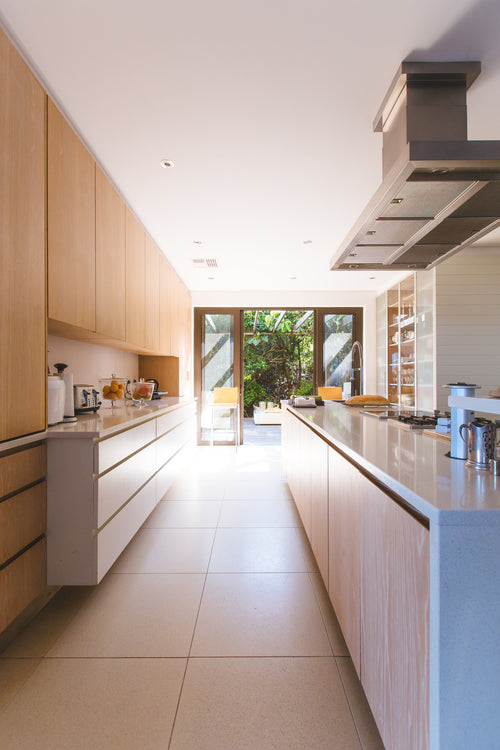CONCRETE COUNTERTOPS: TOPICAL SEALERS VS PENETRATING SEALERS

Finished concrete countertops are trending right now, and for good reason. They’re comparable in cost to granite and marble, durable, and can give any kitchen or bathroom a clean and modern appearance. But concrete countertops require a different level of care to keep them protected and looking like new. Let’s explore the differences and benefits of topical sealers versus penetrating sealers for concrete countertops.
For many people, choosing a sealer can be confusing because there are many options on the market. In addition to sorting through brand names and ingredients, you must also understand the difference between a topical sealer and a penetrating sealer – and which is best for your concrete countertops.
WHAT IS A TOPICAL SEALER?
Let’s start with topical sealers. A topical sealer is something that stays on the top layer of your concrete countertops without soaking in or saturating the pores. An example would be a wax sealer, which may fill in crevices, but will not be absorbed into the concrete itself.
Topical sealers provide protection only at the surface. The sealer itself is likely to thin and vanish over time through ordinary wear and tear. That means it may need to be reapplied frequently, particularly if you use your countertops frequently.
The advantages of using a topical sealer are:
-
They are often less expensive than penetrating sealers.
-
When properly applied, they can protect your concrete countertops from scratches, staining and acid etching.
-
They’re less likely to emit toxic fumes or be unsafe to use.
There are a few downsides, too. Topical sealers may alter the appearance of your countertops. They tend not to let countertops breathe, so if they are applied while a countertop is still wet, moisture may get trapped between the topical sealer and the concrete countertop. Sometimes, surface sealers can cause the surface to haze of become cloudy. Finally, a topical sealer is likely to require reapplication more frequently than a penetrating sealer.
WHAT IS A PENETRATING SEALER?
A penetrating sealer for a concrete countertop is exactly what it sounds like: a sealer that penetrates the surface of the concrete and is absorbed into it. Unlike a topical sealer, it does not sit on top layer of the counter.
There are some significant advantages to choosing a penetrating sealer for your concrete countertops. For example:
-
Penetrating sealers last a long time and need reapplication less frequently than topical sealers.
-
Penetrating sealers can be both water resistant and repellant and oil resistant and repellant.
-
They are UV transparent and are thus not affected by UV rays.
-
They are breathable and will not trap moisture or vapors.
That said, there are some significant cons to consider before choosing a penetrating sealer. They are:
-
Penetrating sealers are sometimes quite expensive.
-
Many contain toxic chemicals, so consumers must use special safety measures to apply
-
May not protect your concrete countertops from acid etching
You’ll need to weigh the pros and cons to decide if a penetrating sealer is the best choice for your concrete countertops.
WHICH OPTION IS BEST FOR SEALING CONCRETE COUNTERTOPS?
The best sealer for your concrete countertops is one that is nontoxic, easy to apply and effective. Because concrete countertops are extremely porous, it’s important to find a sealer that goes a long way in terms of coverage rates, too.
SimpleCoat combines the properties of both a topical and a penetrating sealer. It contains zero toxic chemicals and it’s easy to apply – simply clean your countertops with soapy water, dry, wipe SimpleCoat on and wipe away the excess. The entire process takes only a few minutes.
SimpleCoat saturates deep into the pores of your concrete countertops, preventing bacterial growth and soil buildup to keep them clean while also protecting the surface from staining and acid etching. It also minimizes the appearance of scratches on the surface of concrete countertops.
Unlike many of the penetrating sealers on the market, SimpleCoat is nontoxic and food safe. It’s completely odorless and free of noxious chemicals. Most of our customers find that applying SimpleCoat once every 3-6 months for general protection is enough, while others apply monthly or weekly due to high traffic. However, SimpleCoat is totally safe and effective for daily use to maintain optimal protection and ensure your concrete countertops never lose a smooth, clean-looking sheen.



